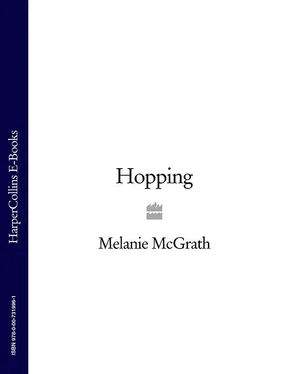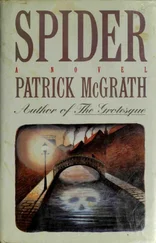1 ...8 9 10 12 13 14 ...19 What were you thinking? said Mrs Shaunessy, grabbing Daisy by the shoulders and giving her a good shake. Leaving your sister like that?
The little girl had been picked up by the carter, who had seen her dangling her legs over the platform at Selling station. When questioned, Franny had said she was waiting for the train to Poplar, but the carter, surmising from her accent that the little girl was an East End picker, had brought her back to Gushmere Farm.
She could have been killed, and then what’d I say to your poor ma what’s already lost her twinnies and ain’t all there in the head? Lord save me, Daisy Crommelin, if you shouldn’t be bleedin’ well shamed of yourself!
Daisy had never heard Mrs Shaunessy swear before. It was rather alarming. She felt rage and shame in equal measure. The injustice of it, when it was Mrs Shaunessy who’d told them to go and play! But she knew such thoughts were dangerous. It had been thoughts like these – like thinking she deserved a toffee apple flat and had a right to one – which had set off the train of events leading to Elsie’s absence and their current exile. Whatever happened, Franny was special, and it was Daisy’s responsibility to look after her, particularly now, when they were away from their mother and father.
Mrs Shaunessy never heard the full story behind Franny’s flight but Lilly heard it later from another girl and passed it on to Daisy. Billy Shaunessy had taken Franny to one side and told her that a giant lived at the top of the beanstalks in the hop garden waiting for little girls to eat. So terrified had she been by this news that she had run directly to the train station to wait for the next train home. It was only fortunate that no train had come, or Franny Crommelin might have found herself alone at London Bridge.
From then on, Daisy did her best to keep her sister in her sight. During the day, while she picked hops in the Shaunessy family drift, she had Franny stay beside her and play with some dolls Daisy had made for her from twigs and pieces of rag. At five every day all picking would cease. This was the time Daisy loved best, when the evening stretched out before her, plump with possibility. She would take Franny and with Lilly they would go blackberrying or swimming in the dank little pool the locals called Ghost Hole Pond, or they would sit at the rim of the chalk pit watching the antics of Big Marmalade and Ship’s Cat or the swallows diving for insects and dandelion clocks rising up on the summer thermals. At other times they would clamber across the downed oaks in Winterbourne Wood and climb to the top of Iron Hill and watch horses and carts and the occasional steam tractor or thresher lumbering along the Roman Road, and Franny would say Is that the tram? and Daisy would laugh and reply:
There ain’t no tram in the country, silly , and gazing out across the beamy hills and wooded nooks of the Kentish Downs, Daisy would comfort herself with the thought that here, where the horizon stretched out as far as the eye could see, the tumult of war and even her mother’s illness seemed so fantastically remote it was hard, sometimes, to remember them. She began to miss her old life less and less; Elsie, flower-making, Old Pigswill and sickly-coloured fogs. All she longed for was Joe, and his stories.
And so the weeks passed until, one day in September, it started raining. It rained so hard that the bines dripped with drowned insects and the hop cones softened and clung to their stalks; it rained on the huts until tiny ropes of water snaked along the walls and on to the palliasses and the cinder paths until they ran in muddy streams; it rained on the evening fires and on the washing put out to dry. And it rained the next day and the day that followed that. By the end of the third morning, Franny was coughing green phlegm and by the afternoon a fever had set in. The next day the hop doctor called, announcing himself, as he always did, with a cheery Bring out your dead! , but he had nothing to offer except to tell Mrs Shaunessy to keep the girl warm and dry, two things which, given the weather, had become impossible. Old Nell suggested taking the invalid to the vardoes for a Gypsy cure, and having no better idea herself except to pray, Mrs Shaunessy bundled the little girl into her hop cart and, with Daisy and Old Nell helping to push, trundled along Vicarage Lane towards Poppington Bungalow, where, scattered among the trees, were a dozen or more gaily painted caravans.
Franny was too ill to protest about the intrusions of the Gypsy women as they ruffled through her hair, pulled up her eyelids to inspect the eyes and prodded the tiny ribcage, and too ill to notice the taint of their herbs in the spoonfuls of treacle Mrs Shaunessy doled out to her. But whatever the Gypsies gave Franny it worked. By the following morning her fever had gone and she was no longer coughing up phlegm. By the end of the week she had never looked so healthy, and though she continued to complain about almost everything, she never again repeated her flight to Selling station, nor spoke much of going home.
As September drew to a close, the annual hop wound down. There was a party with jugs of beer and three whole roasted pigs. Bit by bit, women and children drifted back to the city, but the Shaunessy party stayed on to pick plums, apples and pears. The leaves began to turn, and each morning in the hop huts seemed a little colder than the last. In the first week of October Lilly left, and not long after that, a telegram arrived for Mrs Shaunessy. They were at the hop huts preparing breakfast when the man on the chestnut horse rode up. On hearing there was a telegram for Mrs Shaunessy, Old Nell and Joan came bustling over, with grave looks on their faces. Mrs Shaunessy took the telegram, read it and fell over. After Joan had picked her up, the man took Mrs Shaunessy back to the farmhouse on his horse. Nell looked after the two Crommelin girls and Billy Shaunessy for the remainder of the day, and burned the onion pud. The next day they heard that Patrick Shaunessy had lost both his legs and was being discharged, as a consequence of which Mrs Shaunessy would be returning to Poplar the following afternoon, taking her son and the Crommelin girls with her.
Though Daisy longed to see her father, she didn’t want to leave. She spent her last evening saying goodbye to Big Marmalade and Smuts and Ship’s Cat, to the hop gardens and to Ghost Hole Pond. At the pond she noticed something red lying in the water and, poking at it with a stick, saw that it was a Union Jack flag on a stick. She thought she could guess whose it was. That night, her last in hop hut number 21, she lay awake listening to the screech owls and the barks of the foxes, wondering how she could ever have found them strange or frightening. The next morning she woke early with a feeling of dread. The rabbits were out, and old Nell was fixing breakfast. In the six weeks she had been away, she realised that she hadn’t once thought about the Sandeman in The Deep, but now that she remembered them, she had no doubt that they were both still there, and that she was about to go back to them.
CHAPTER 3
Henry Baker began his working life in the West India Docks the year after the Great Dock Strike in 1890, at the age of twelve. He started by fetching and carrying ropes, winches, dockers’ hooks and whatever else the breaking gang he worked for needed shifting. Once the gang had broken up and cleared the cargo, young Henry would be lowered into the ship’s hold to sweep and clean, an experience that left him with an abiding horror of dark, enclosed spaces. At the age of fourteen he graduated to breaking, becoming one of a small team within the gang responsible for dividing the cargo, attaching rope strops to it and seeing it out of the hold. It was dangerous work. Cargo routinely loosened and shifted at sea, and even the most experienced breaker couldn’t tell exactly what he was dealing with until he was standing beside it in the hold, as a result of which barely a month went by without someone being crushed by a bale of rubber or a cord of timber. In common with most of the gangs working around the docks, Henry’s gang had set up a funeral savings club to which everyone contributed tuppence a week. Nothing shamed a docker more than the thought of a cheap funeral.
Читать дальше












